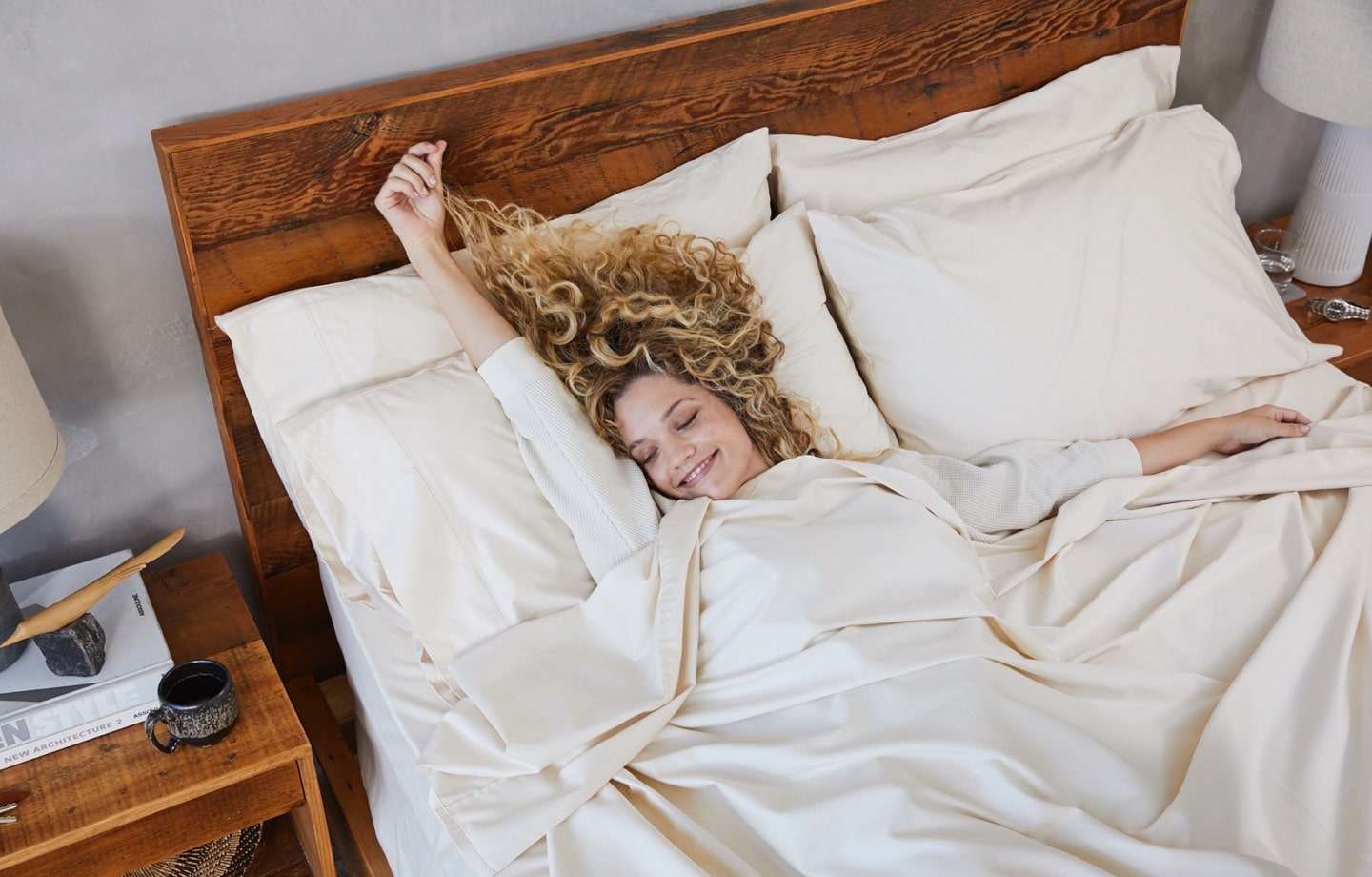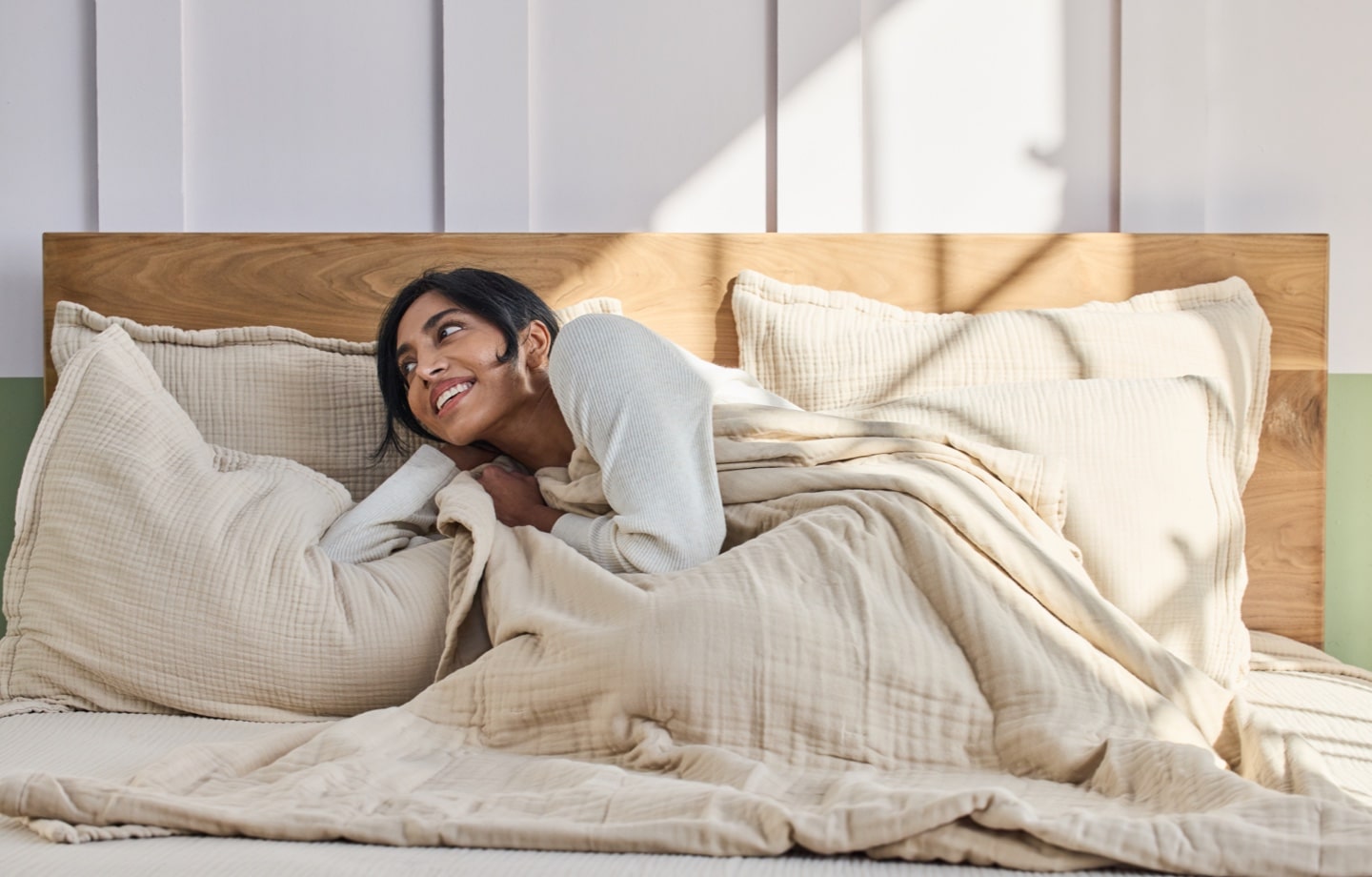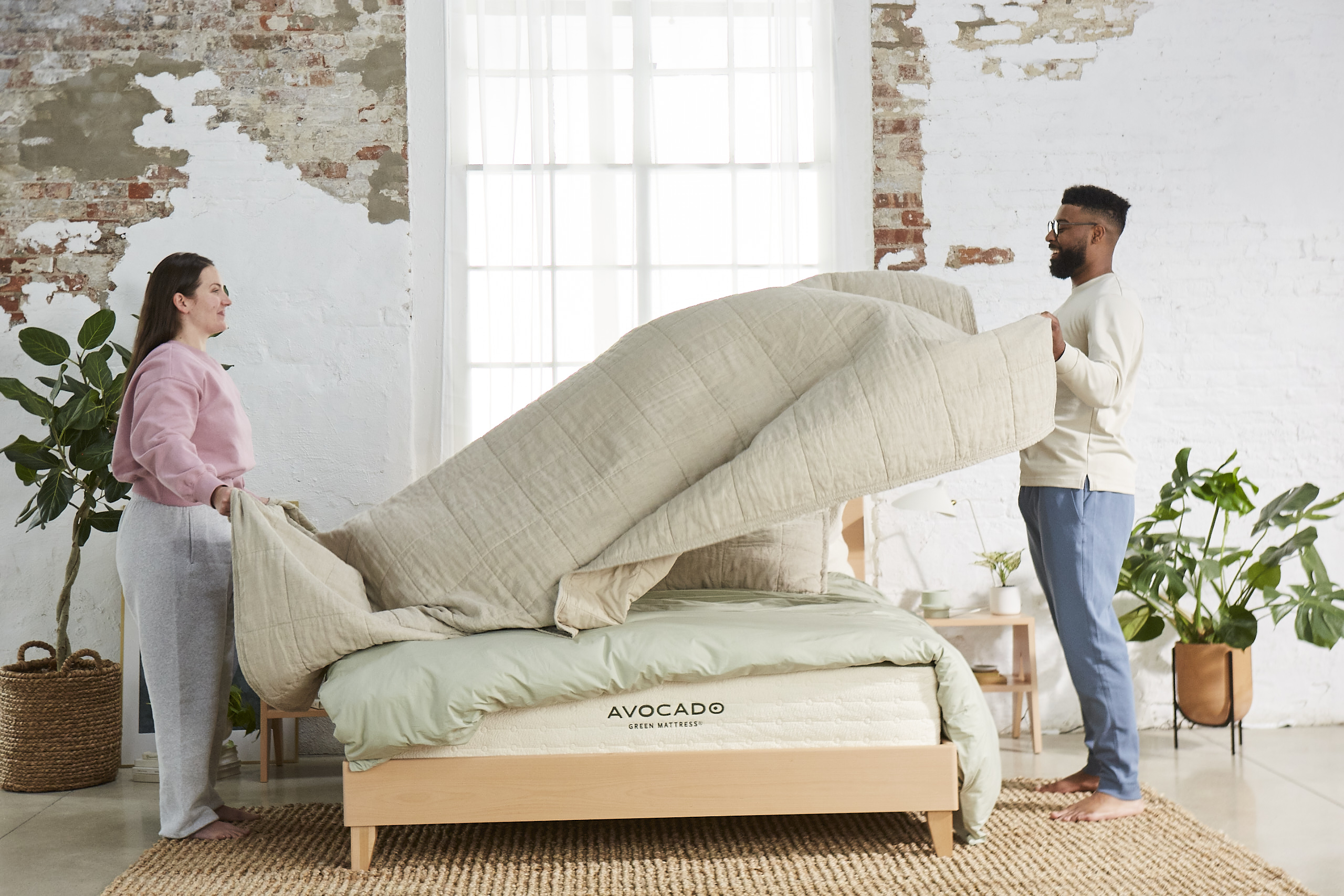Are We Overthinking Sleep?
“Sleepmaxxing” may be trending, but trying too hard to perfect your sleep could be counterproductive.
As the parent of a nearly one-year-old, I spend most nights wishing for any stretch of uninterrupted sleep, so “sleepmaxxing” — TikTok’s latest wellness obsession — naturally caught my eye. The concept is all about optimizing both the quantity and quality of your sleep: fine-tuning your routine, adjusting your environment, and possibly adding sleep aids like melatonin or magnesium, all with the aim of maximizing physical and mental performance. It’s a term that captures a new era of sleep thinking, where better sleep isn’t just about getting more hours, but about getting the “right” kind of rest.
It’s not news that sleep plays an essential role in overall wellbeing, affecting everything from memory and mood to cardiovascular health. But as wellness culture, wearable tech like the Apple Watch and Oura Ring, and a fixation on productivity became part of our daily lives over the past decade, suddenly people weren’t just thinking about the basic health implications of sleep.
Wearables allowed users to track their sleep patterns in real time, providing data about sleep stages (light, deep, REM), sleep duration, and even factors that influence sleep quality, like heart rate and body temperature. Armed with this data, “sleep hackers” began experimenting with optimizing their sleep habits to boost cognitive performance and productivity, and today, buoyed by a tidal wave of books, podcasts, and reddit threads, “sleep optimization” has officially entered the mainstream.
For some sleep experts, this growing emphasis on sleep is a welcome shift, a sign that people are finally prioritizing rest. But others caution that the drive to achieve the ‘perfect’ night of sleep might do more harm than good, especially for those already struggling with sleep anxiety.
“When we become overly concerned with optimizing our sleep, we can end up overthinking the process,” says behavioral sleep medicine specialist and president of the board of directors for the American Academy of Sleep Medicine Jennifer L. Martin, PhD. “This can interfere with the body’s natural sleep rhythms and increase feelings of pressure. The more effort we put into trying to achieve ideal sleep, the less likely we are to achieve it. Sleep should be restorative, not another goal to constantly strive toward.”

Read more: How to Combat Sleep Anxiety
Another side of the internet pitches sleepmaxxing as pushback against the hustle culture that’s long been revered in high-pressure fields like tech, finance, and entrepreneurship. The concept flips the narrative, challenging the idea that sacrificing sleep in the name of productivity is somehow a virtue. Instead, sleepmaxxing advocates for the value of quality rest—not just for better sleep, but to enhance creativity, mental clarity, and overall well-being.
Whether you’re curious about biohacking or just looking for a better night’s sleep, it’s worth considering a few things first:
Your body has a pretty good sense of whether it’s getting enough sleep—or not. If you wake up feeling refreshed, don’t spend the day fighting fatigue, and don’t find yourself needing to “catch up” on weekends, then sleepmaxxing might not be necessary for you. But if you’re constantly tired or find yourself leaning on caffeine just to stay alert, it might be time for a closer look at your sleep habits.
Generally, sleep quality matters more than quantity. You could sleep for nine hours, but if your rest is fragmented or you’re not reaching deep sleep stages, you’ll still wake up feeling drained. It’s those full, uninterrupted sleep cycles that give your brain and body the reboot they need.
Artificially extending sleep or relying too heavily on sleep aids can backfire.
Overdoing naps or leaning on medication can disrupt your circadian rhythm. For instance, napping too late in the day can sabotage your ability to fall asleep at night, and chronic use of sleep aids can create dependencies. A consistent sleep schedule is often a more reliable foundation for long-term health.

Read more: Bedtime Mocktail Series: Peaceful Pomegranate Cinnamon Sipper
Sleepmaxxing can interfere with your sleep cycles.
Sleep cycles — comprising both REM and non-REM stages — are crucial for waking up feeling rested and for maintaining everything from immune function to memory consolidation. Disrupting these cycles, for example by experimenting with frequent daytime naps, could have the opposite effect, leaving you feeling more groggy than refreshed. The key is syncing your habits with your body’s natural circadian rhythms, rather than trying to force an unnatural pattern onto them.
Oversleeping can have negative effects on physical and mental health.
Oversleeping can sometimes signal underlying health concerns, such as depression or sleep apnea, and is also linked to a range of issues, including heart disease and cognitive decline. If you’re regularly sleeping more than 9-10 hours but still feel fatigued, it may be time to check in with your doctor.

Read more: Is Your Sleep Tracker Making You Anxious?
Have feedback on our story? Email [email protected] to let us know what you think!

Shop Pillows
The Essential Organic Pillow Collection
Gentle, breathable, non-toxic support.







